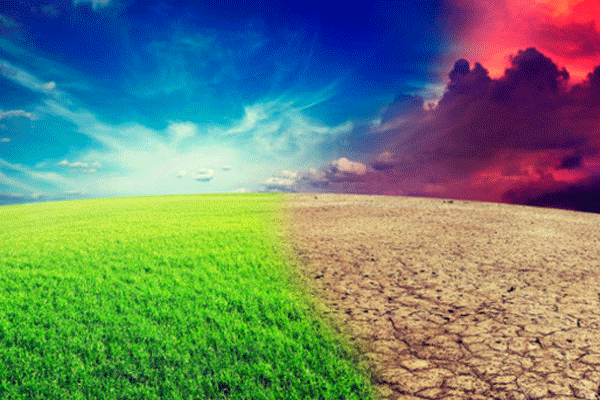
WHEN so much attention is being focused on improving people’s knowledge and understanding of climate change issues, it is only the print media, radio and television that have become dominant mouthpieces of climate change discourse, while on the ground, there isn’t enough literature for ordinary people to familiarise themselves with.
guest column: Peter Makwanya
There is a dearth of a climate change reading culture, which is worsened by the absence of literature that would empower the ordinary people to contribute to sustainable climate cultures and participatory communities of practice.
There isn’t enough literature talking about current and prevailing societal problems like water scarcities, extreme weather events, decreases in agricultural yields or the impacts of droughts.
Because there isn’t enough reading material designed to take into account the wishes and expectations of ordinary people, there is a lot of misinformation and disinformation.
People lack access to simple climate discourse, yet they need to understand why their pastures are diminishing and why streams are drying.
While most communities have been relying on fossil fuels, they need to understand the dangers these pose to their environment.
If authorities cannot provide grassroots people with relevant and locally empowering climate change literature, there is a real danger they will miss out on critical information and continue plundering the environment.
- Chamisa under fire over US$120K donation
- Mavhunga puts DeMbare into Chibuku quarterfinals
- Pension funds bet on Cabora Bassa oilfields
- Councils defy govt fire tender directive
Keep Reading
Failure to provide adequate literature is against the aspirations of the Sustainable Development Goals, which purport not to leave anyone behind, yet in the majority of countries, multitudes are being left behind.
The responsible ministries and organisations should do better by making climate change literature available for people to read and familiarise themselves with environmental and ecological changes affecting their lives.
Radios, print media and television, though important, are not sufficient as climate change illiteracy is still high among laypersons.
As climate change narratives are becoming central to development discourse, so should literature.
But what we still have, in most cases, are jargon and ambiguity-infested climate change documents, which have no meaning to the grassroots and laypersons.
It against this background that there should be concerted efforts to reduce climate change knowledge gaps and improve the knowledge base.
This will allow ordinary people to be able to engage in sustainable climate change debates, as well as visualising climate issues through local and global lenses.
These debates are not only for the informed and literate, but for everybody, just as climate change affects us all.
In this era, it is increasingly becoming impossible for climate literature-providing companies to continue operating in the background, as their services are required.
Communication should be people-centred, inclusive and long-lasting.
The provision of grassroots access to information on climate change is essential and paramount for the art of sustainable living and it does not stifle development.
Peter Makwanya is a climate change communicator. He writes in his own capacity and can be contacted on: [email protected]











